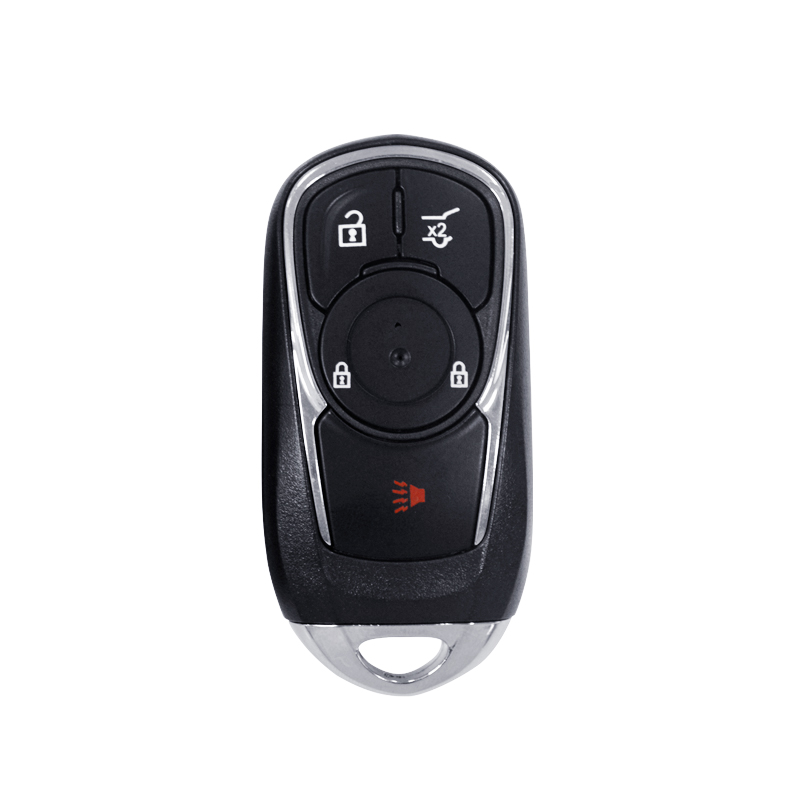With the advancement of technology, car keys have evolved beyond simple mechanical devices to sophisticated electronic components that provide security and convenience for vehicle owners. However, this progress has also led to the proliferation of counterfeit car keys, posing a significant risk to vehicle security and safety. In response, various measures have been implemented to prevent counterfeit car keys from entering the market, while authentic keys are authenticated through rigorous processes. In this article, we'll explore these measures and authentication methods in detail.

Measures to Prevent Counterfeit Car Keys
1. Intellectual Property Protection
Car manufacturers invest heavily in intellectual property protection to safeguard their key designs and technologies. This includes patents, trademarks, and copyrights to prevent unauthorized replication of key designs and encryption algorithms.
2. Secure Supply Chain Management
Car manufacturers work closely with authorized suppliers and distributors to ensure the security of their supply chain. Implementing strict protocols and audits help prevent the infiltration of counterfeit components into the manufacturing process.
3. Encryption and Authentication Protocols
Modern car keys utilize advanced encryption and authentication protocols to prevent unauthorized access. These protocols, such as rolling codes and challenge-response mechanisms, ensure that only authentic keys can communicate with the vehicle's immobilizer system.
4. Unique Identification Features
Authentic car keys often incorporate unique identification features, such as serial numbers or embedded chips, which can be verified by authorized dealers or service centers. These features help distinguish genuine keys from counterfeit ones.
5. Anti-Counterfeiting Technologies
Car manufacturers may integrate anti-counterfeiting technologies into their keys, such as holograms, watermarks, or tamper-evident seals, to deter counterfeiters and assist in visual authentication.
Authentication of Authentic Car Keys
1. Dealer Verification
Authorized dealers and service centers have access to manufacturer databases and diagnostic tools that can authenticate car keys. They can verify key codes, serial numbers, and other identification features to confirm authenticity.
2. Key Programming and Initialization
When a new key is programmed or initialized with a vehicle's onboard computer system, it undergoes a validation process to ensure compatibility and authenticity. Only genuine keys can be successfully programmed and recognized by the vehicle.
3. Onboard Vehicle Systems
Modern vehicles are equipped with sophisticated onboard systems that can detect and authenticate car keys wirelessly. These systems use encryption algorithms and digital signatures to verify the authenticity of key signals.
4. Manufacturer Support
Car manufacturers provide support and training to authorized dealers and locksmiths on key authentication procedures. They also maintain databases of key codes and serial numbers to assist in verification and replacement.
5. Aftermarket Solutions
Third-party companies may offer aftermarket solutions for key replacement and programming. However, vehicle owners should exercise caution and ensure that these companies use genuine parts and adhere to manufacturer authentication standards.
Conclusion
Preventing counterfeit car keys from entering the market and authenticating genuine keys are critical aspects of vehicle security and safety. Car manufacturers employ a combination of measures, including intellectual property protection, secure supply chain management, encryption protocols, unique identification features, and anti-counterfeiting technologies, to combat counterfeiting. Meanwhile, authentic keys are authenticated through dealer verification, key programming, onboard vehicle systems, manufacturer support, and aftermarket solutions. By implementing these measures and authentication methods, vehicle owners can protect their vehicles from unauthorized access and ensure the integrity of their car key systems.

 Englishen
Englishen











 No.991 Xingxiu Road,Taiwanese Investment Zone, Quanzhou, Fujian Province,P.R.China
No.991 Xingxiu Road,Taiwanese Investment Zone, Quanzhou, Fujian Province,P.R.China +86 13960286508
+86 13960286508
 3D Reality Showroom
3D Reality Showroom
